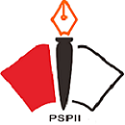Enhancing Institutional Reputation and Student Excellence: The Management of Superior Class Programs in Islamic Education
Abstract
Keywords
Full Text:
PDFReferences
Ali Khan, J., Raman, A. M., Sambamoorthy, N., & Prashanth, K. (2023). Research Methodology (Methods, Approaches And Techniques). San International Scientific Publications. https://doi.org/10.59646/rmmethods/040
Andri Sungkowo, Munkizul Umam Kau, Muhammadong, Abdul Rozak, & Yadi Suryadi. (2024). Revitalizing Religious Learning in Madrasah Through the Use of Technology. IJGIE (International Journal of Graduate of Islamic Education), 5(1), 82–96. https://doi.org/10.37567/ijgie.v5i1.2808
Davoodi, A. (2024). EQUAL AI : A Framework for Enhancing Equity , Quality , Understanding and Accessibility in Liberal Arts through AI for Multilingual Learners. Language, Technology, and Social Media, 2(2), 178–203.
Dikaprio, V., & Dahlan Diem, C. (2024). How Effective is Talkpal.ai in Enhancing English Proficiency? Insights from an Experimental Study. Language, Technology, and Social Media, 2(1), 48–59. https://doi.org/10.70211/ltsm.v2i1.48
Irfan, M., Khan, S. Z., Hassan, N., Hassan, M., Habib, M., Khan, S., & Khan, H. H. (2021). Role of Project Planning and Project Manager Competencies on Public Sector Project Success. Sustainability, 13(3), 1421. https://doi.org/10.3390/su13031421
Kamalov, F., Santandreu Calonge, D., & Gurrib, I. (2023). New Era of Artificial Intelligence in Education: Towards a Sustainable Multifaceted Revolution. Sustainability, 15(16), 12451. https://doi.org/10.3390/su151612451
Kandampully, J., Zhang, T., & Jaakkola, E. (2018). Customer experience management in hospitality. International Journal of Contemporary Hospitality Management, 30(1), 21–56. https://doi.org/10.1108/IJCHM-10-2015-0549
Karoso, S., Handayaningrum, W., Handayani, E. W., & Yanuarti, S. (2024). The Role of Human Resource Management Strategy in Creating Superior Quality Educators. Nidhomul Haq : Jurnal Manajemen Pendidikan Islam, 9(3), 596–615. https://doi.org/10.31538/ndhq.v9i3.7
Li, L. (2022). Reskilling and Upskilling the Future-ready Workforce for Industry 4.0 and Beyond. Information Systems Frontiers, 1–16. https://doi.org/10.1007/s10796-022-10308-y
Mahardhika, B. N., & Raharja, S. (2023). The Importance of Strategic Planning With Modern Trends in Education. AL-ISHLAH: Jurnal Pendidikan, 15(2), 1807–1820. https://doi.org/10.35445/alishlah.v15i2.2527
Matias, N. A. G., Bartolome, P. H. D., R, S. L., Tallara, F. M. L., & Villarama, J. A. (2024). Meme-ingful Actions : Uncovering the Influence of Political Memes on Leadership Performance and Values Formation. Language, Technology, and Social Media, 2(2), 204–219.
Moulin-Stożek, D. (2020). Spiritual Development as an Educational Goal. ECNU Review of Education, 3(3), 504–518. https://doi.org/10.1177/2096531120935128
Muttaqin, I. (2020). Supervision Planning at Islamic Education Institutions: Google Scholar Library Studies and Mendeley’s Reference Manager. Istawa : Jurnal Pendidikan Islam, 5(2), 222. https://doi.org/10.24269/ijpi.v5i2.2847
Opeyemi Ishaaq El-Mubarak, A. M., & Hassan, I. (2021). Challenges of Islamic Education in the Era of Globalization: A Proposed Holistic Solution. International Journal of Academic Research in Progressive Education and Development, 10(3). https://doi.org/10.6007/IJARPED/v10-i3/10748
Razmeh, S., & Salgado, Y. (2024). Empowering Future Bilingual Educators: Integrating Trauma-Informed Approaches in Bilingual Teacher Education. Language, Technology, and Social Media, 2(2), 72–85. https://journal.wiseedu.co.id/index.php/ltsmjournal/article/view/118
Rong, T., Ristevski, E., & Carroll, M. (2023). Exploring community engagement in place-based approaches in areas of poor health and disadvantage: A scoping review. Health & Place, 81, 103026. https://doi.org/10.1016/j.healthplace.2023.103026
Rožman, M., Tominc, P., & Štrukelj, T. (2023). Competitiveness Through Development of Strategic Talent Management and Agile Management Ecosystems. Global Journal of Flexible Systems Management, 24(3), 373–393. https://doi.org/10.1007/s40171-023-00344-1
Sain, Z. H., Geng, H., & Song, Y. (2024). Impact of English Language Coaching Classes in Pakistan : Bridging Educational Gaps and Socioeconomic Challenges. Language, Technology, and Social Media, 2(2), 116–127.
Sari, R., Daneska, E., & Hartanti, A. (2019). Empowering Pedagogical Competences of Islamic Education Department Students in an Inclusive Setting Learning. GUIDENA: Jurnal Ilmu Pendidikan, Psikologi, Bimbingan Dan Konseling, 10(1). https://doi.org/10.24127/gdn.v10i1.2665
Tolchah, M., & Arfan Mu’ammar, M. (2019). ISLAMIC EDUCATION IN THE GLOBALIZATION ERA; CHALLENGES, OPPORTUNITIES, AND CONTRIBUTION OF ISLAMIC EDUCATION IN INDONESIA. Humanities & Social Sciences Reviews, 7(4), 1031–1037. https://doi.org/10.18510/hssr.2019.74141
Yocum, R. (2014). Spiritual Development and Education: A Sequential Mixed-Methods Approach. Religion & Education, 41(1), 80–99. https://doi.org/10.1080/15507394.2012.716351
Zamiri, M., & Esmaeili, A. (2024). Methods and Technologies for Supporting Knowledge Sharing within Learning Communities: A Systematic Literature Review. Administrative Sciences, 14(1), 17. https://doi.org/10.3390/admsci14010017
DOI: http://dx.doi.org/10.24042/atjpi.v15i2.25679
Refbacks
- There are currently no refbacks.
Copyright (c) 2025 Al-Tadzkiyyah: Jurnal Pendidikan Islam

This work is licensed under a Creative Commons Attribution 4.0 International License.

Al-Tadzkiyyah: Jurnal Pendidikan Islam is licensed under a Creative Commons Attribution 4.0 International License. Copyright © UIN Raden Intan Lampung. All rights reserved.








